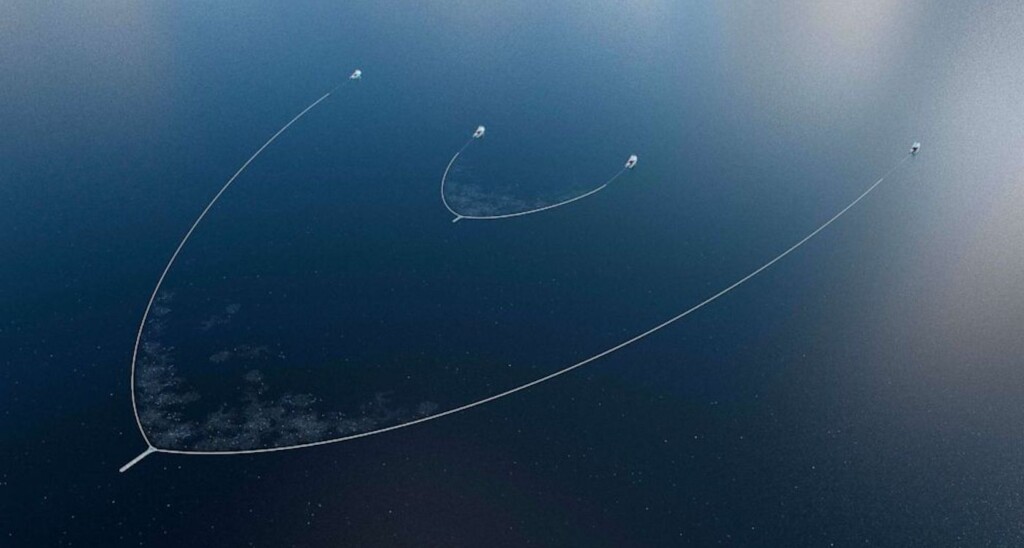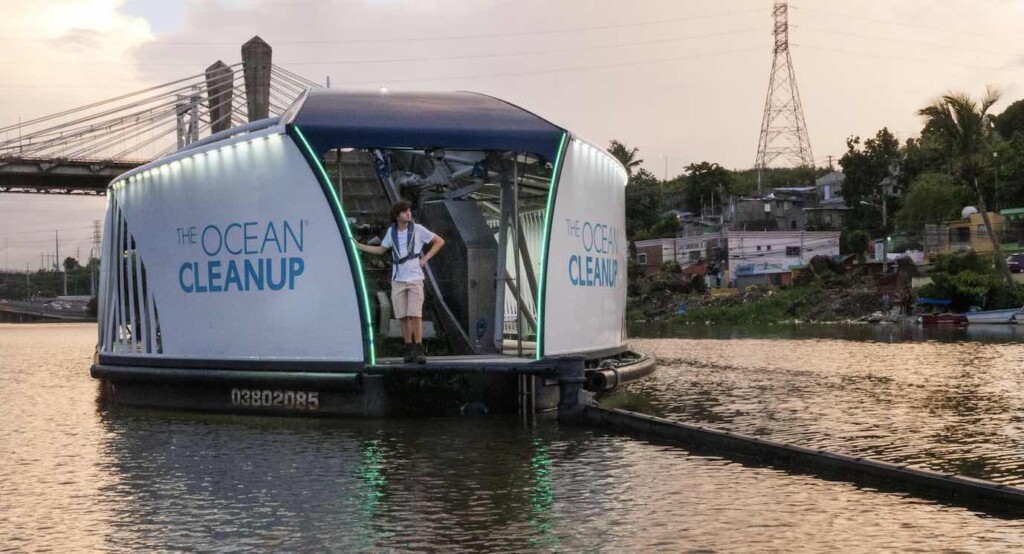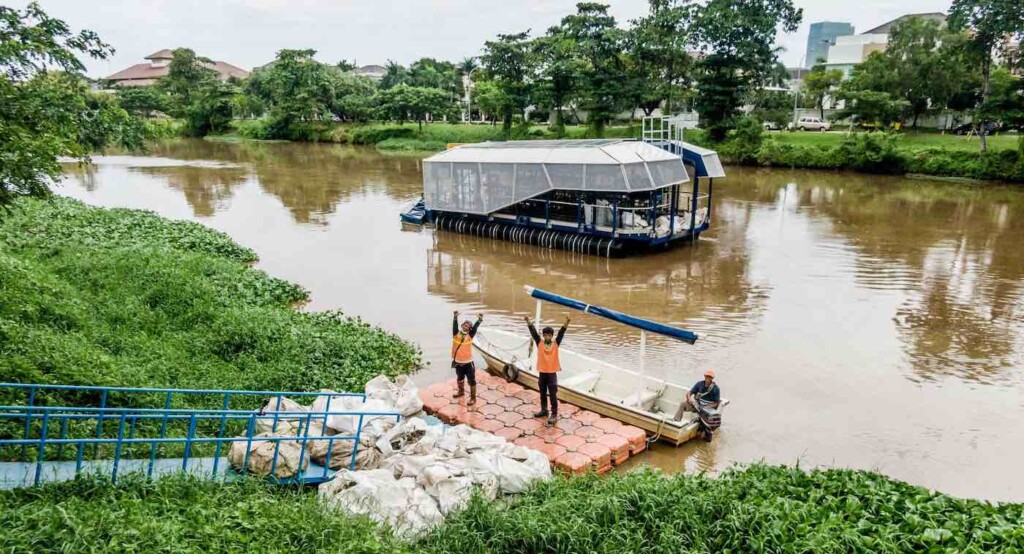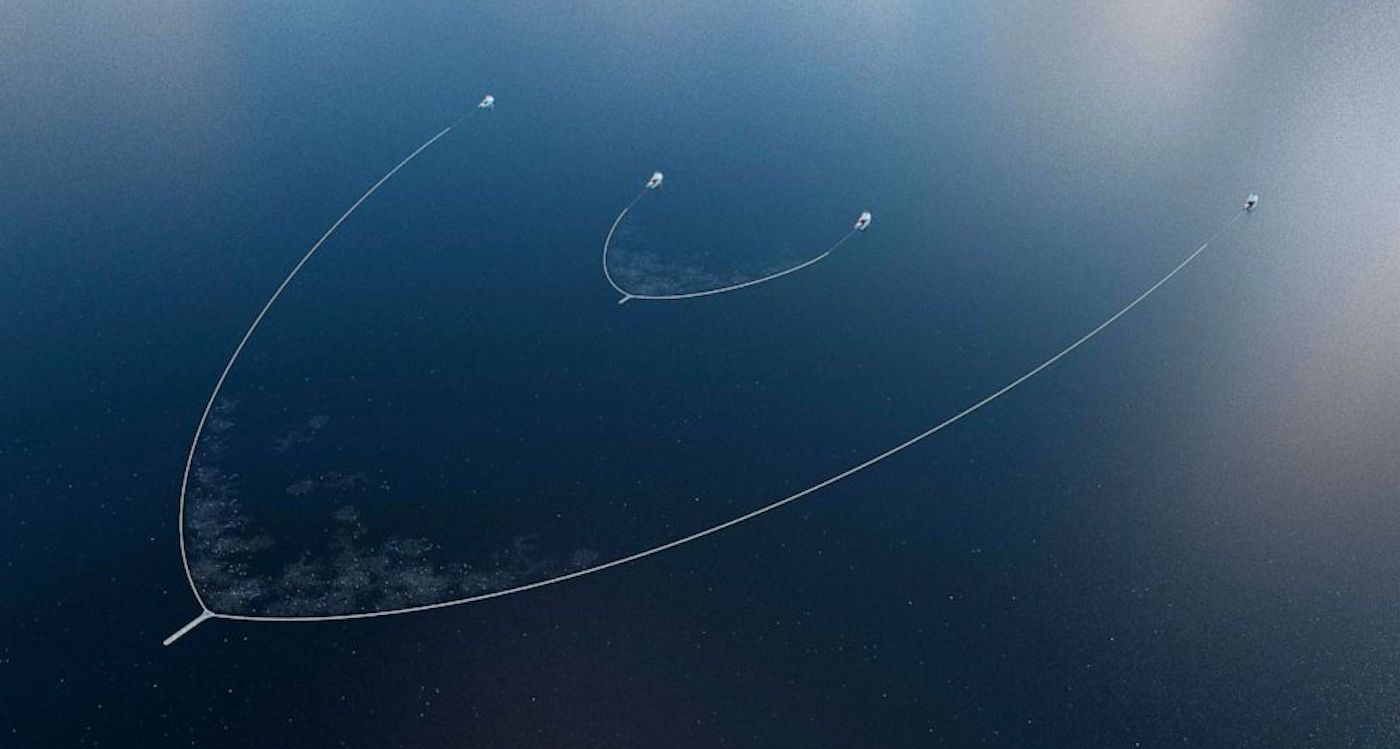
Last week, The Ocean Cleanup organization that has been tackling the Great Pacific Garbage Patch deployed their System 03 for the first time—nearly three times larger than the previous technology and capable of cleaning the area of a football field every five seconds.
This follows testing of their two smaller systems which succeeded in extracted over 275 tons of plastic from the Garbage Patch since 2021.
The arrival of System 03 marks a huge leap forward for the Dutch CEO Boyan Slat and his team, and their mission of ridding the oceans of at least 90% of the plastic trash by 2040.
System 03 consists of a floating barrier approximately 1.4 miles (2.2 km) long, which is towed between two slow-moving vessels. This barrier suspends a screen extending 13 feet (4 meters) below the surface of the water, where most floating plastic is encountered.
Once the trash is removed, an onboard crew sorts it to ensure the plastic is put to good use, by recycling it into sustainable new products.
Watch a video to see how it works…
This week we had our largest ever extraction from the Great Pacific Garbage Patch: 11,353 kg of plastic out of the ocean for good.
— The Ocean Cleanup (@TheOceanCleanup) August 11, 2023
As we transition to System 03, we see that increasing system size leads to bigger catches. pic.twitter.com/5UcrpATHbi
Most recently, they teamed up with automaker Kia to incorporate the salvaged plastic into their new electric vehicles, with the first batch delivered to Kia on System 002’s final return to port earlier this summer.
To prove we could turn this trash into treasure, we used our first ocean catch to produce The Ocean Cleanup Sunglasses – made from plastic extracted directly from the GPGP with System 001/B in 2019. These sold out within 18 months and helped fund future cleanups.
ALOHA HAUL: Hawaii Group Sets Record For Largest Haul of Plastic Removed From The Great Pacific Garbage Patch
“By making System 03 so much bigger than our previous efforts (alongside the multiple upgrades we’ve implemented) we can cover a much larger area of ocean in less time and using fewer resources,” says The Ocean Cleanup. “This brings down our cost per kilogram of plastic removed and maximizes our benefit on the marine environment.”
There is even a Marine Animal Safety Hatch on the new model, which is monitored by underwater cameras, letting crew members provide any animals with a clear exit from their plastic Retention Zone.
What about trash flowing out from rivers?
Simultaneously, Slat and his engineering team are also tackling a related issue—a facet that is just as critical to the overall plastic pollution problem: the world’s most littered rivers. By “turning off the taps” and catching plastic along the river’s course, the much more difficult task of capturing it in the ocean can be mostly avoided.

Their Interceptor machines are efficient solar-powered barges that gobble up plastic river garbage. At top performance, the Interceptors can extract 220,000 pounds (100,000 kilograms) of trash per day
Indonesia announced an ambitious goal to reduce plastic litter in its waterways by 70% in three years—and got help from The Ocean Cleanup river barge.
After positive results in Jakarta, the Interceptor was deployed in other locations—Malaysia, the Dominican Republic, Vietnam, and Jamaica—and most recently, in Los Angeles on Ballona Creek which flows next to Venice Beach carrying plastic into the Pacific Ocean.

CHECK OUT THIS IDEA: City Pays Homeless to Learn Job Skills While Beautifying Riverbanks
“It’s very encouraging to see this positive collaboration between our two governments and The Ocean Cleanup continue, ” said Lambert Grijns, Ambassador of the Netherlands in Indonesia. “Despite the scale of the plastic challenge, the endorsement of these innovative solutions and partnerships gives me hope that we can work together to finally solve this problem for the benefit of all.”
Explore the ways you can help on their website.
FLOAT This Amazing News to Ocean Lovers on Social Media…




















